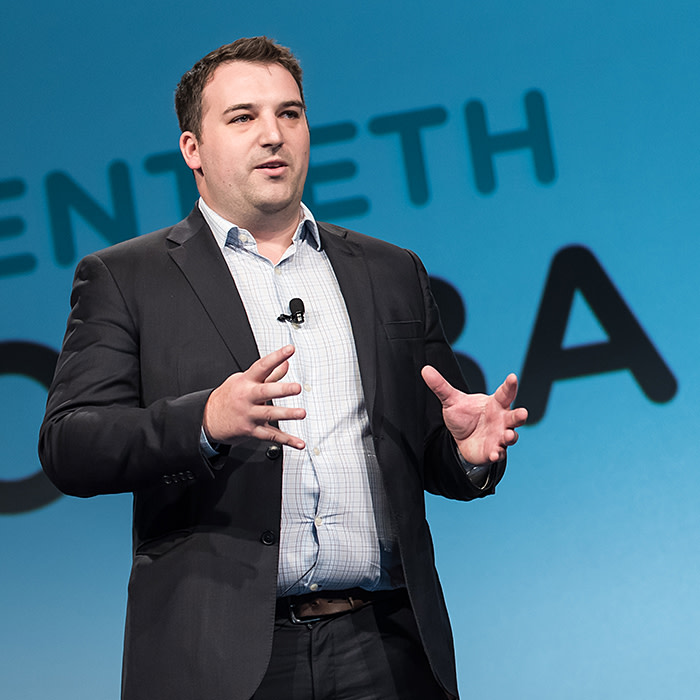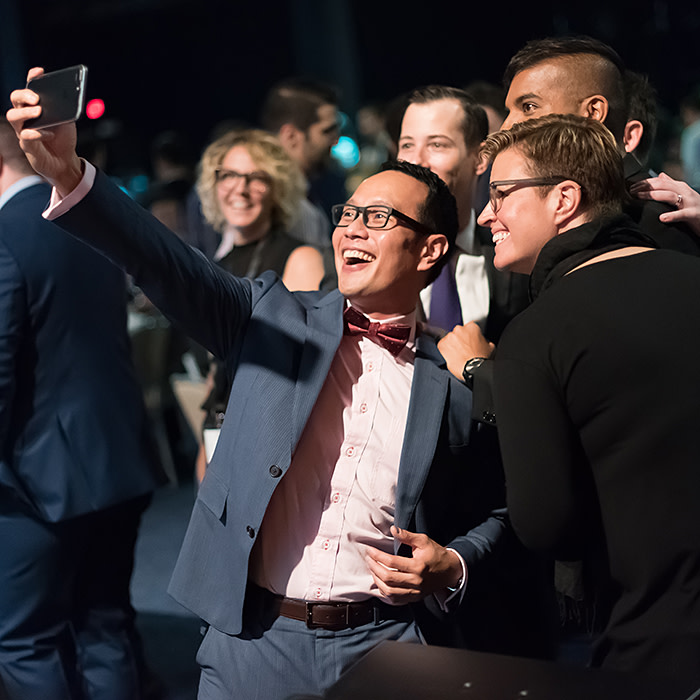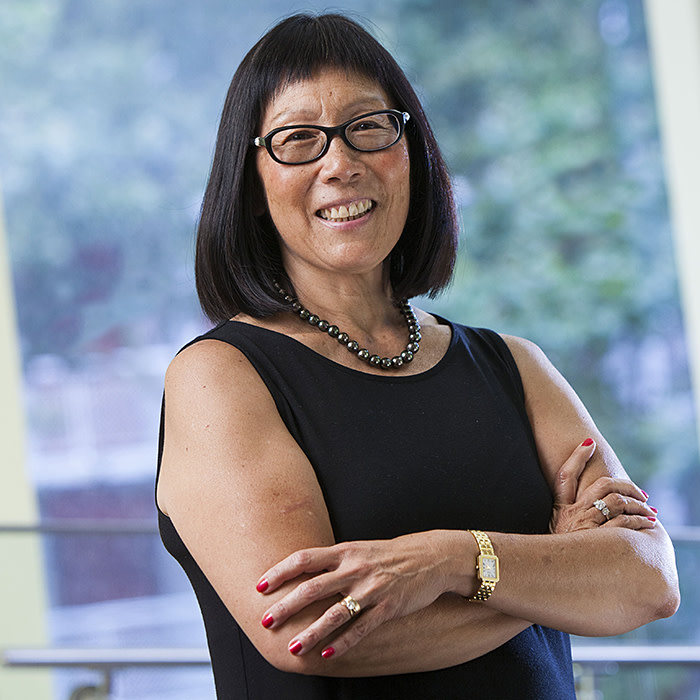Doors open for gay MBA graduates

Simply sign up to the Business education myFT Digest -- delivered directly to your inbox.
Nick Deakin had a very specific reason for going to business school. After working as a doctor for two and a half years at Barts hospital in central London, he enrolled on an MBA because he thought a commercial career would suit him better as a gay man.
“When I was a medical student I did some work with McKinsey and I felt part of a strong network,” he says. “It was fantastic.” Indeed, the atmosphere in consultancy was far more positive to those who are LGBT+ (lesbian, gay, bisexual, transgender and queer) than that in the medical profession, he adds.
On graduating from London Business School he opted for banking, joining the healthcare group at Citi. “I am out at work. I talk about my partner,” he says. “I think it is my duty as someone who is out to talk about it.”
Though investment banking is a tried and tested career path for MBA graduates, its reputation as a testosterone-ridden industry often deters those from the LGBT+ community, believes Matt Kidd, executive director of Reaching Out MBA (Romba), the non-profit set up 20 years ago by students from Harvard and Yale to promote the interests of MBA participants who identify as LGBT+.
One of Romba’s missions is to help change the perception surrounding finance and business. “How do you convince graduates that business school is the place for them?” he asks. “For business schools it is becoming a priority.”

This is because recruiters are increasingly placing an emphasis on diversity in the workplace, says Roxanne Hori, associate dean at NYU Stern and a careers specialist. “There are now more targeted recruitment events,” she says. “Five or six years ago they just didn’t happen.”
Management consultants led the way, says Hori, but banks and technology companies have been catching up and now actively promote affinity groups in order to create a welcoming environment.
Management consultancy McKinsey, for example, set up its Glam (gay, lesbian, bisexual, transgender and queer at McKinsey) network of LGBT+ colleagues in 1995 and now has several hundred active participants.
At rival consultancy Bain, João Soares, the partner who leads the firm’s LGBT+ initiatives, points out that the firm’s approach to the community is two pronged. “We’re committed to bringing the top LGBT+ talent to Bain and then we aim to provide all possible resources to keep that talent,” he says.
For Deakin, who is now involved in recruitment at Citi, it is a similar tale. “We want the best people to be coming to us. If you can show you have a diverse and open employment policy and working environment you won’t miss out on talent.”
Although recruiters talk about the need to have a diverse environment, Hori still believes that the primary motivation is not to miss out on the best graduates. “I’d like to think it’s a heart and soul move,” she says. “But there are many more options today for the top talent on MBA programmes.”

Others are more positive about corporate motivation. LGBT+ candidates often have a high level of emotional intelligence, according to David Poli, co-president of the Out@Anderson club at UCLA Anderson School of Management in California.
Albert Saniger, president of London Business School’s Out in Business society, goes further. “Gender identity is complex. There’s a lot of value recruiters can create for their teams,” he says. “The individuals are self-aware and resilient. It’s an indicator of leadership potential.”
Saniger was one of the organisers of the EurOUT conference in London in November 2017, which attracted representatives from 30 business schools and more than 20 corporate sponsors. It is modelled on the Romba conference in the US, which last year attracted 1,800 participants, including more than 90 corporate supporters.
Romba also launched its first conference in Brazil four years ago and its first Asia-Pacific conference was held in 2017. Asia is “a mixed bag”, says Kidd, “but the region is progressing very quickly”.
So much so that Hewitt Chan, who is a member of the Outsead club at Insead in Fontainebleau, says he is happy to spend time on the school’s Singapore campus this year.
Nipun Sehgal, a UNC Kenan-Flagler MBA student from New Delhi and co-president of the Pride Club there, points out that in his native India homosexual acts are still criminal offences. For him, North Carolina is a liberal environment but, ironically, this may not be the perception in the US, according to his co-president, New Yorker Eric Insler

“There’s definitely a perception in the US that the south is a less tolerant place than the north.”
For Insler, one of the biggest challenges both in business school and the corporate world is to create allies for those who identify as LGBT+. “I had a lot to learn myself about transgender issues,” he says. “I’m an American gay man, but this year I realised I had to be an ally. It’s not just a journey for society, it’s a journey for us as well.”
This article was amended on February 2, 2018 to correct a reference to Mr Seghal’s personal views.
Beyond binary
It has been a hot topic in business schools for decades, but when professors speak of diversity they are usually referring to just two of its aspects: nationality and binary gender distinctions. There is only a handful of published case studies relating to LGBT+ leadership and the topic is rarely taught. What is more, there is very little research.
Zoe Kinias, associate professor of organisational behaviour at Insead, believes that stigma is a big part of the story. “Part of the challenge is the unwillingness to disclose,” she says. “I really do think that the stigma is alive and well.”
Potential discrimination in the workplace can influence career advancement, she points out, and there are clear cultural variances. As in many countries, in Singapore, where Insead has one of its two largest campuses, homosexual acts are technically illegal.
The consequent unwillingness to disclose personal information results in a lack of research data. While consumers are used to identifying as male or female, and this binary distinction has become a fundamental way of sorting large data sets, gender identity is far more complex, points out Prof Kinias. Answering questions on the topic “feels much more personal”, she adds.
Comments